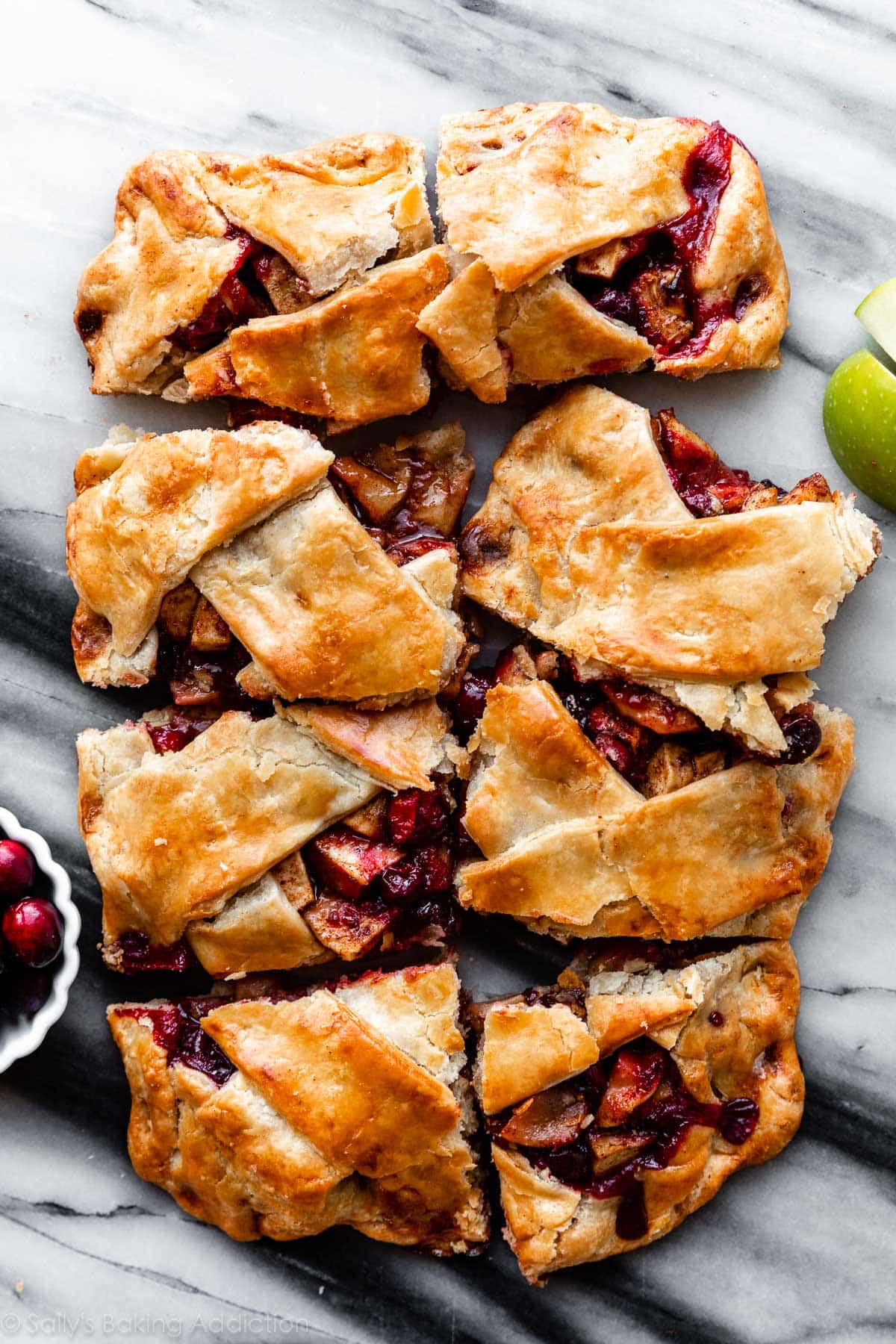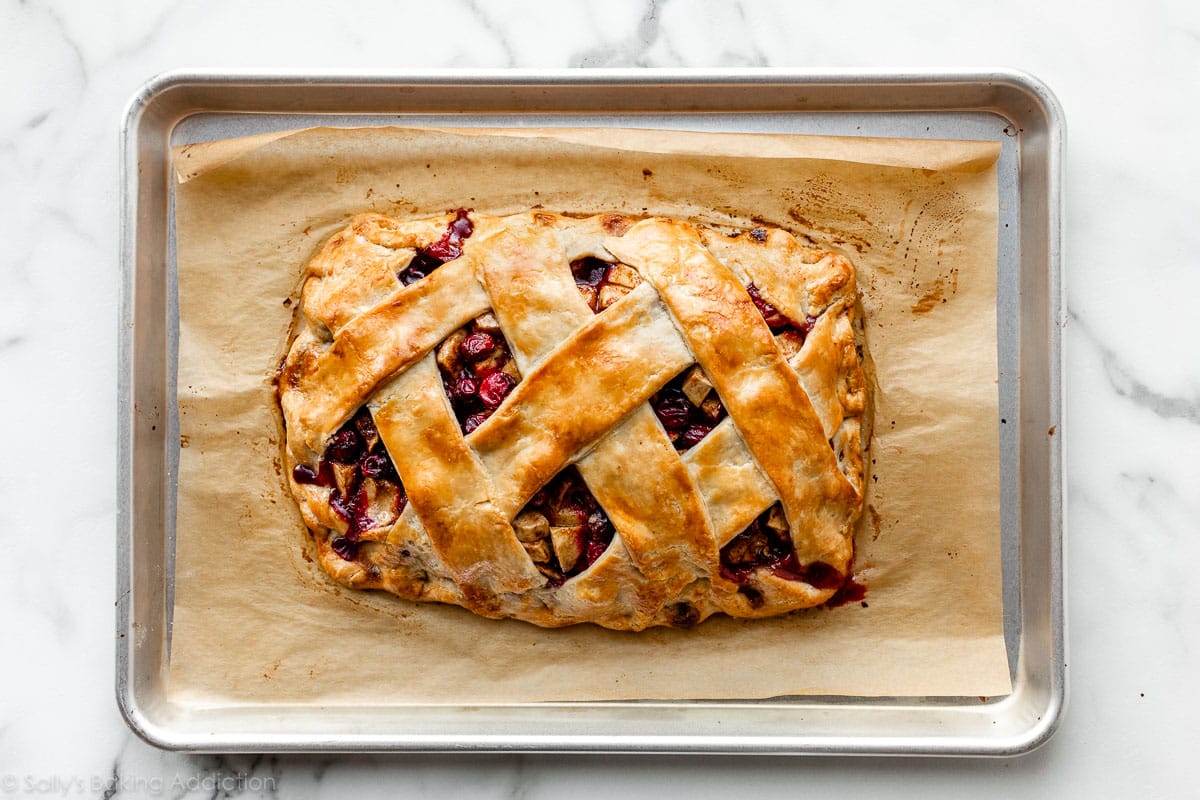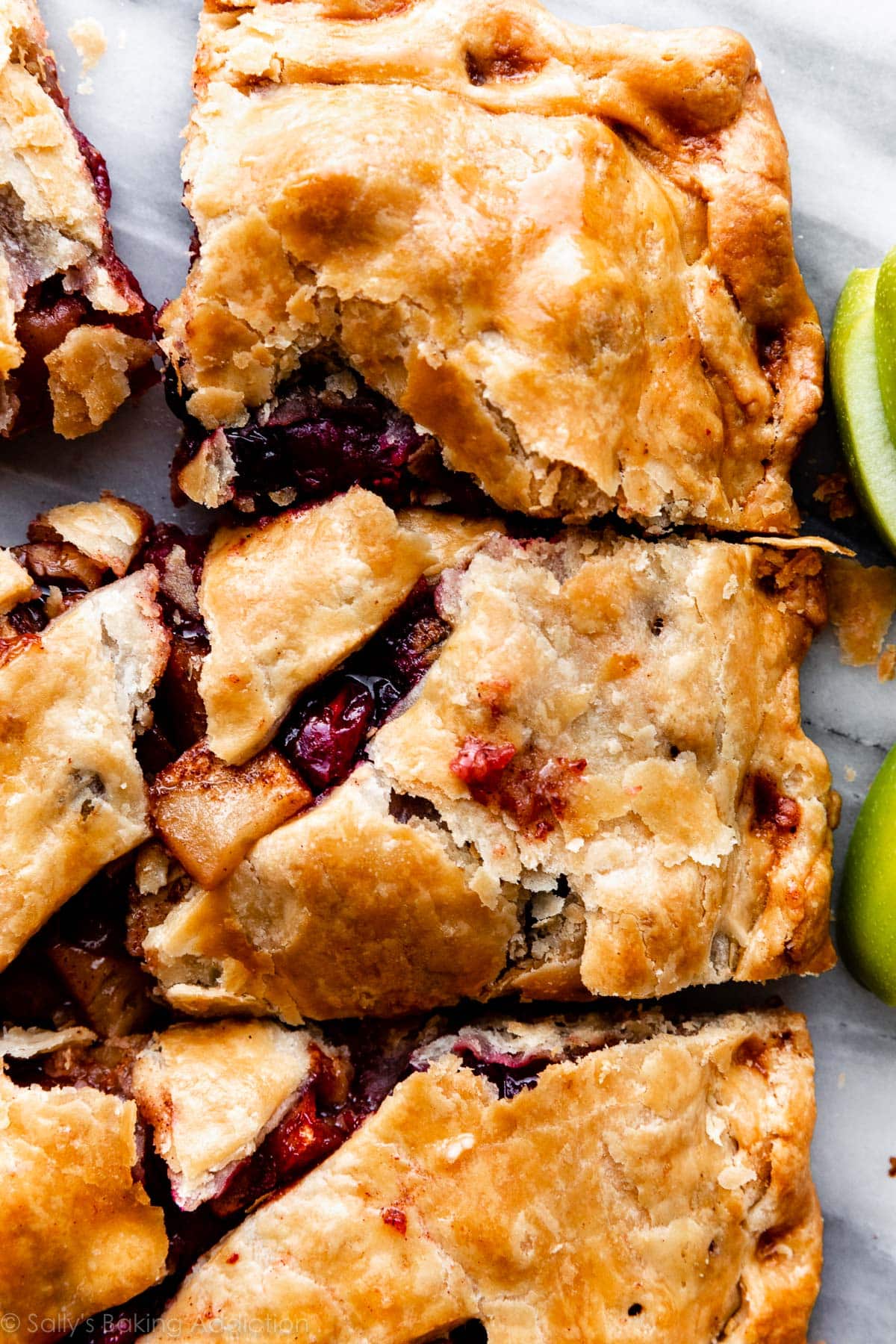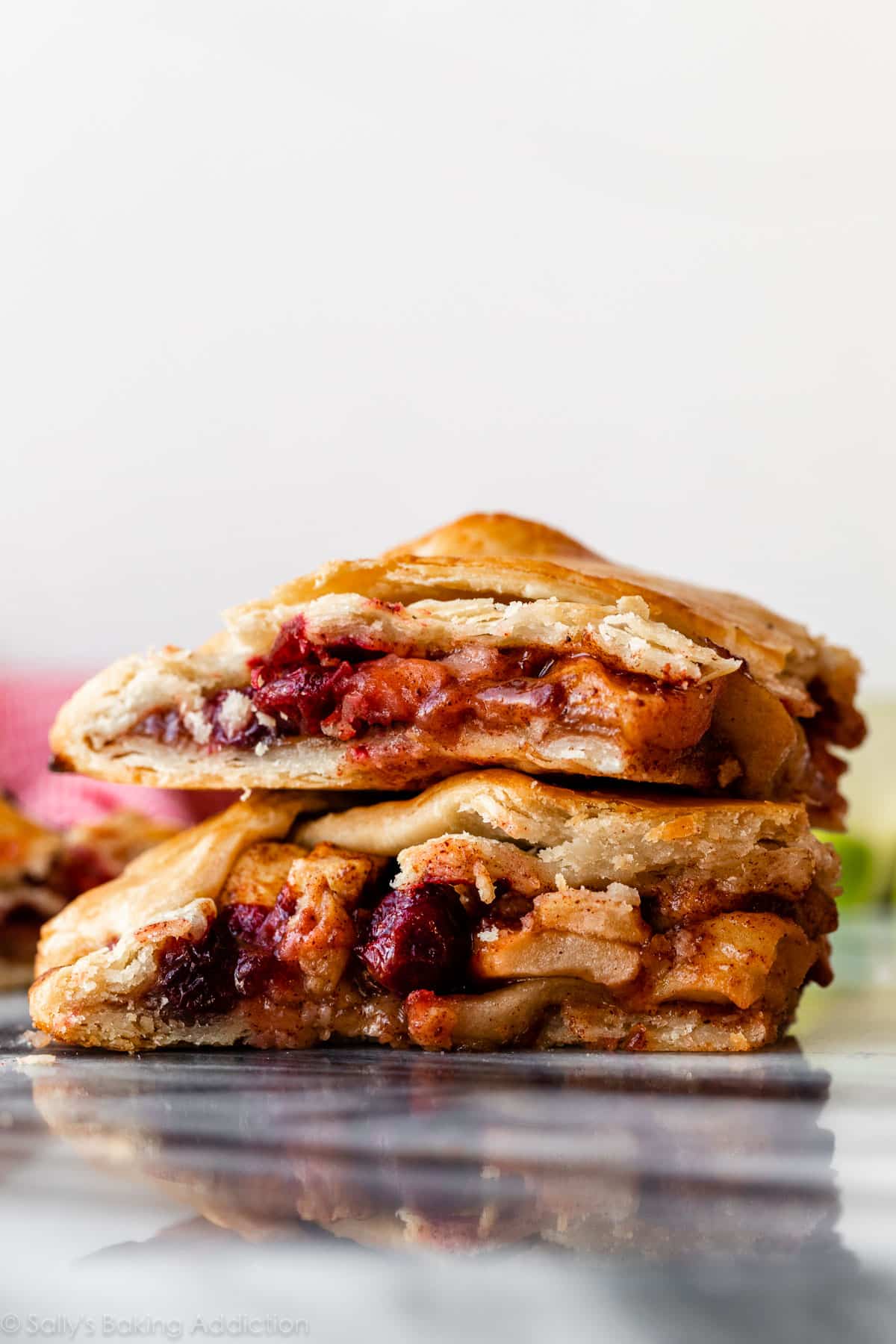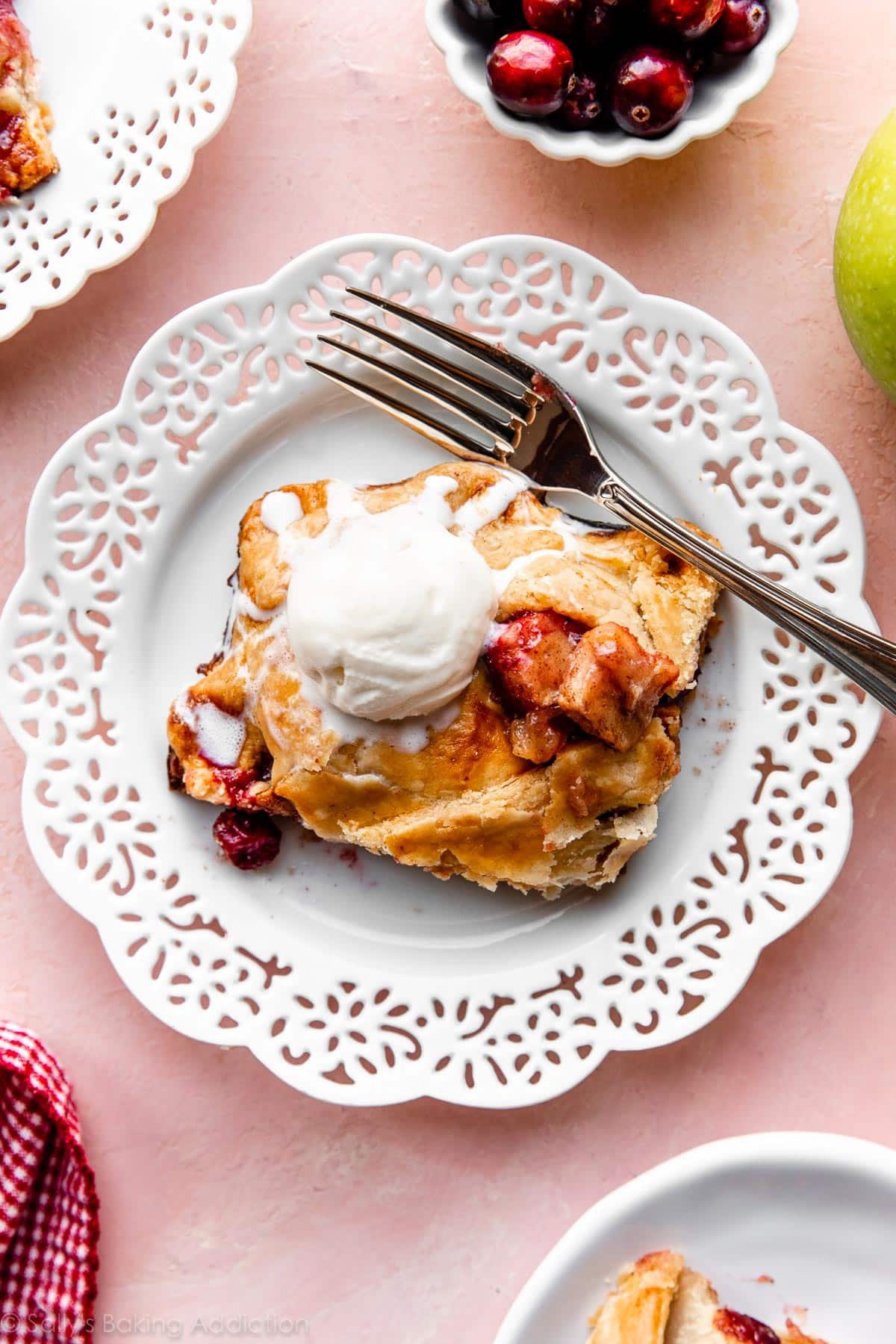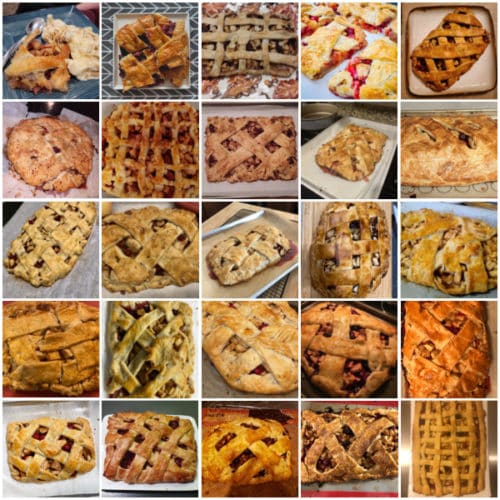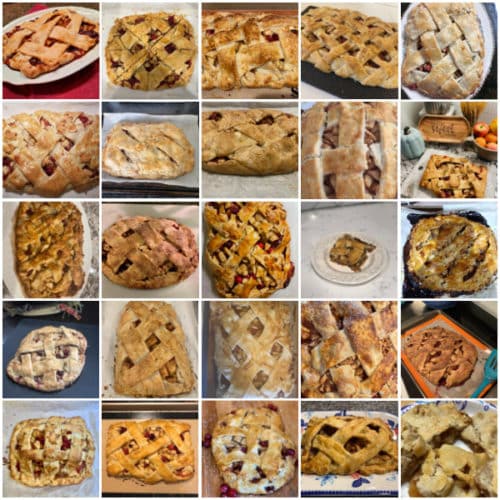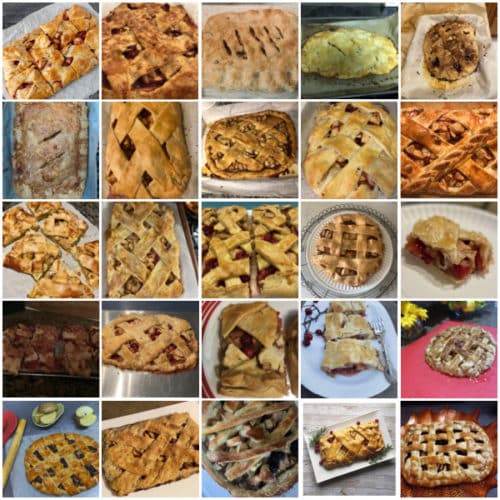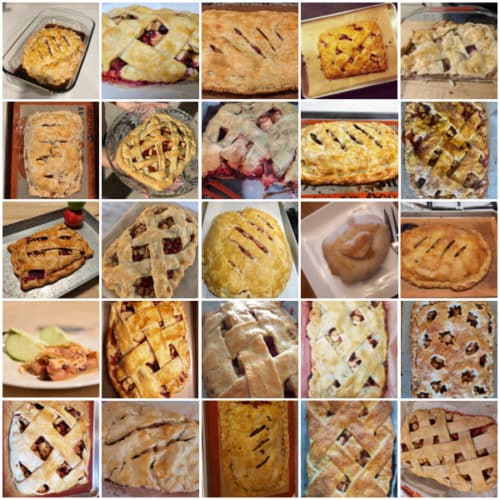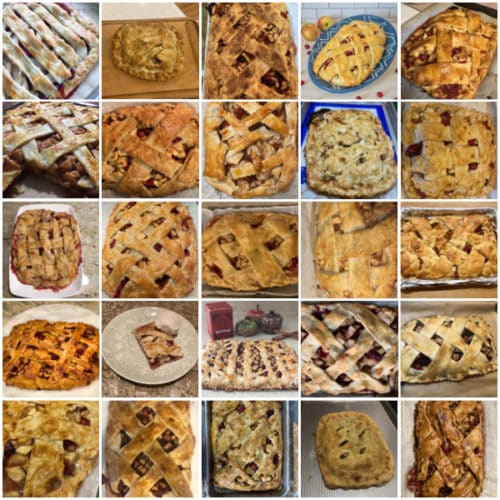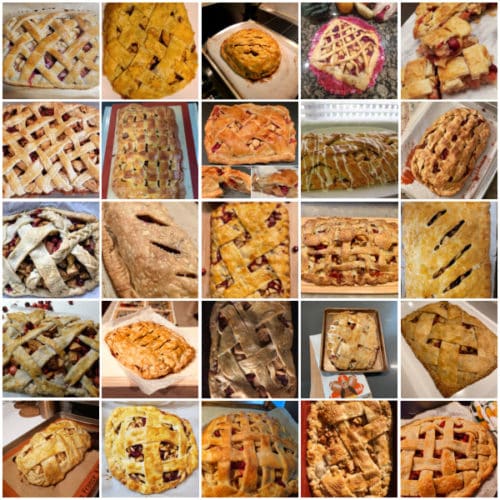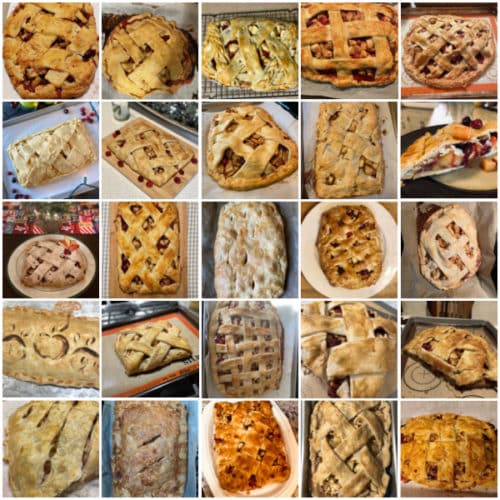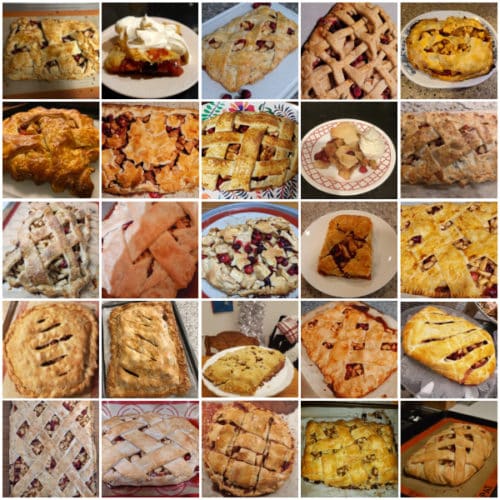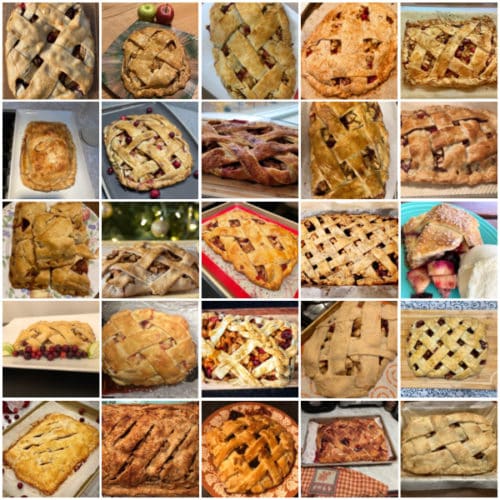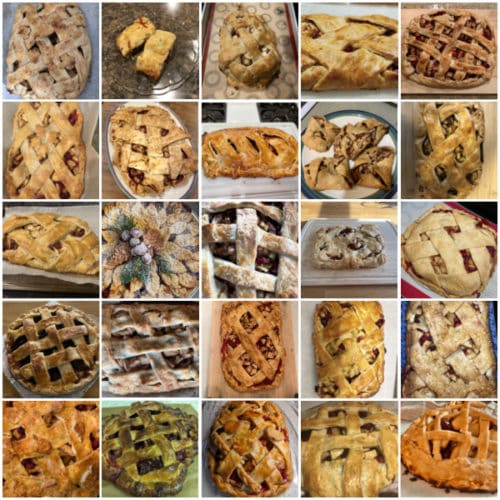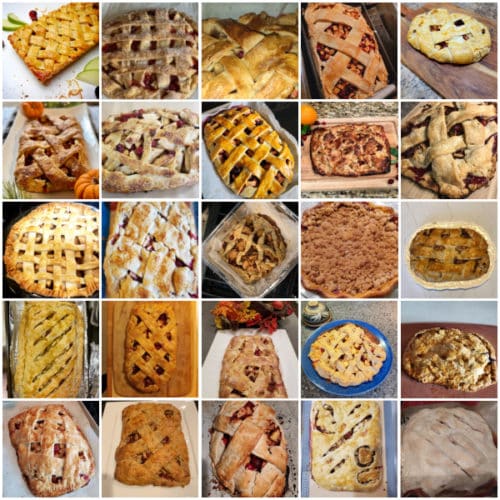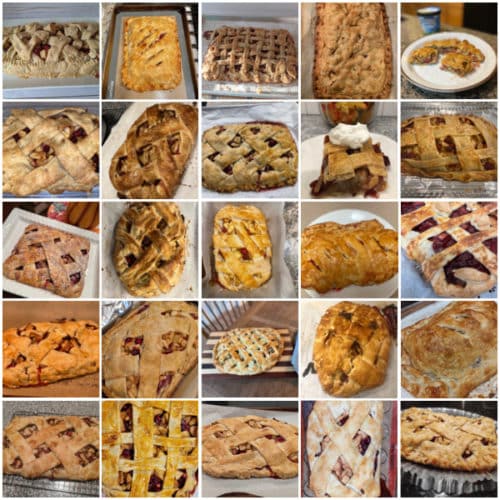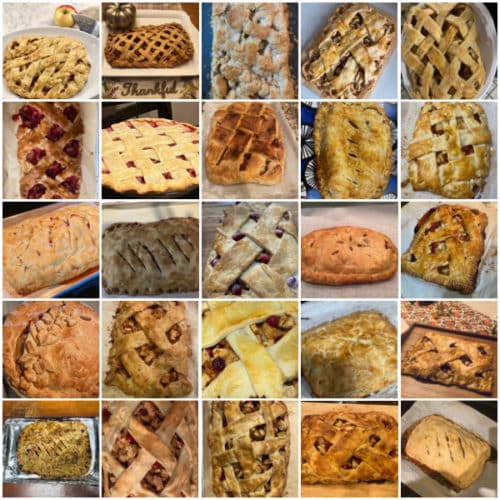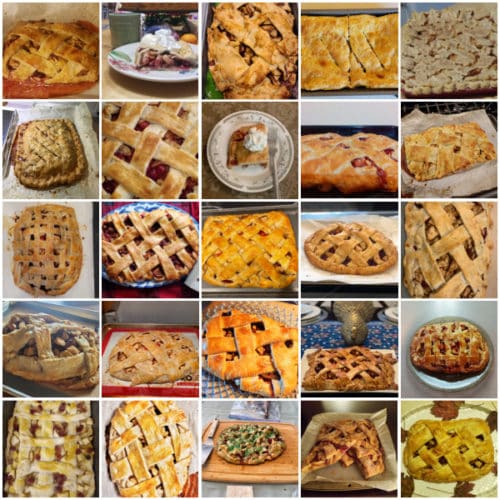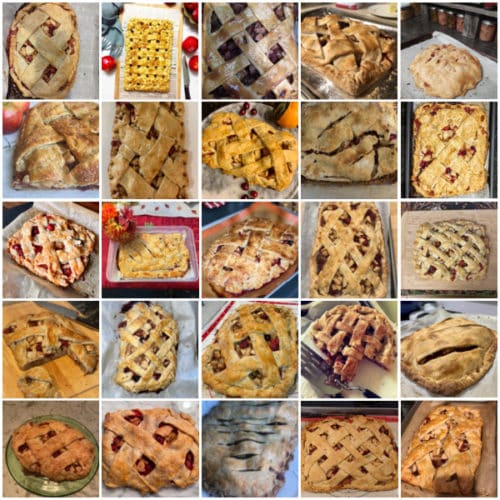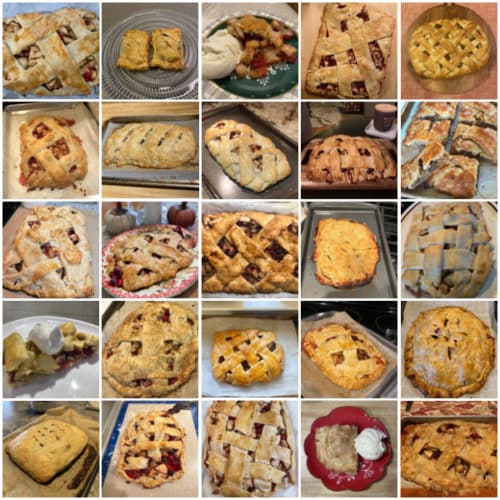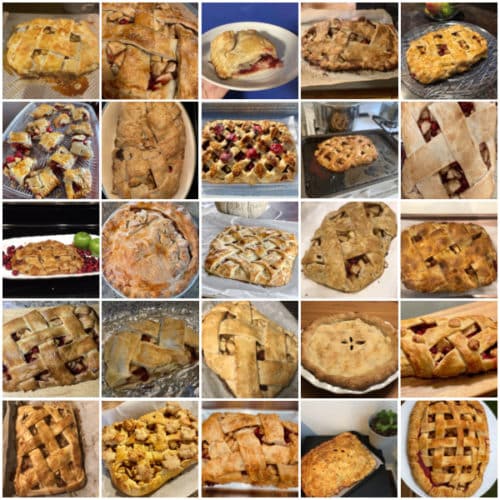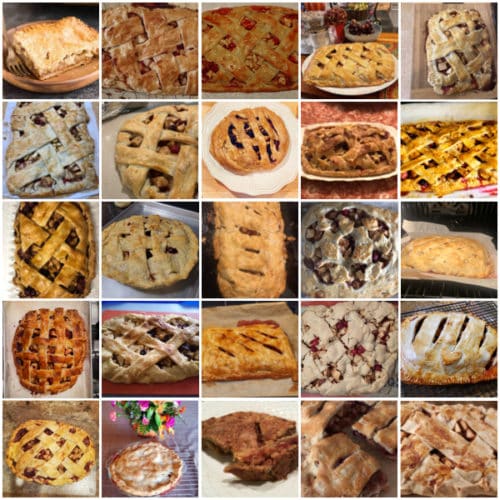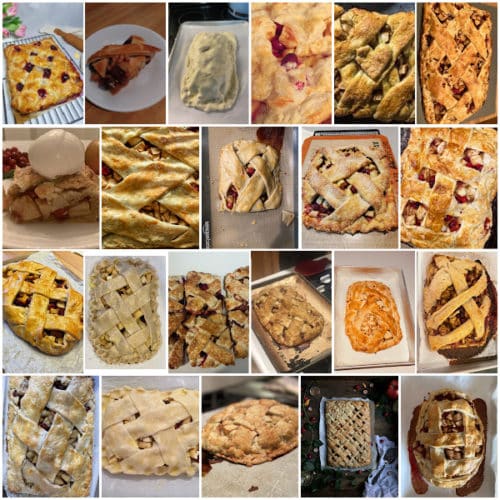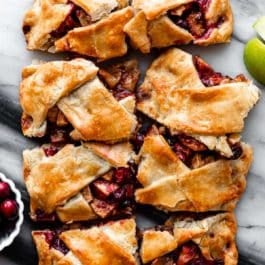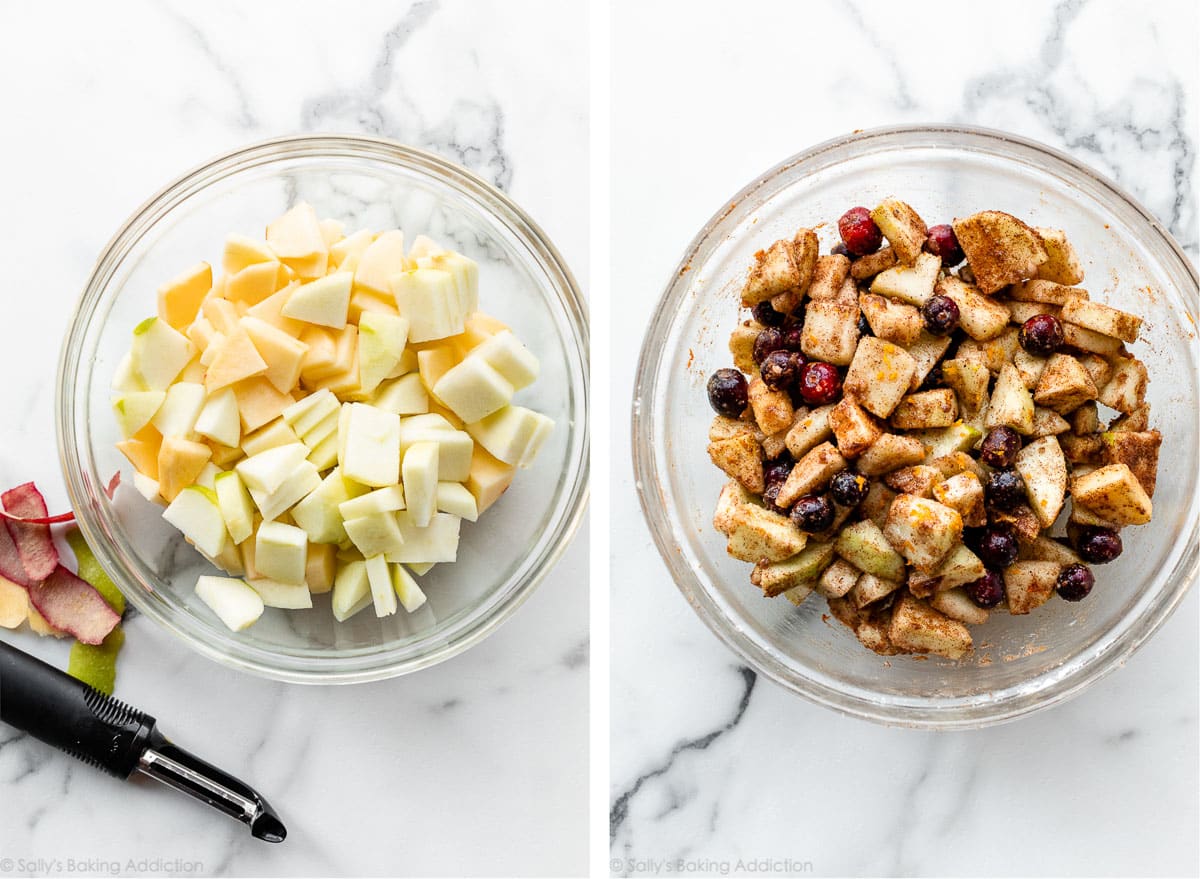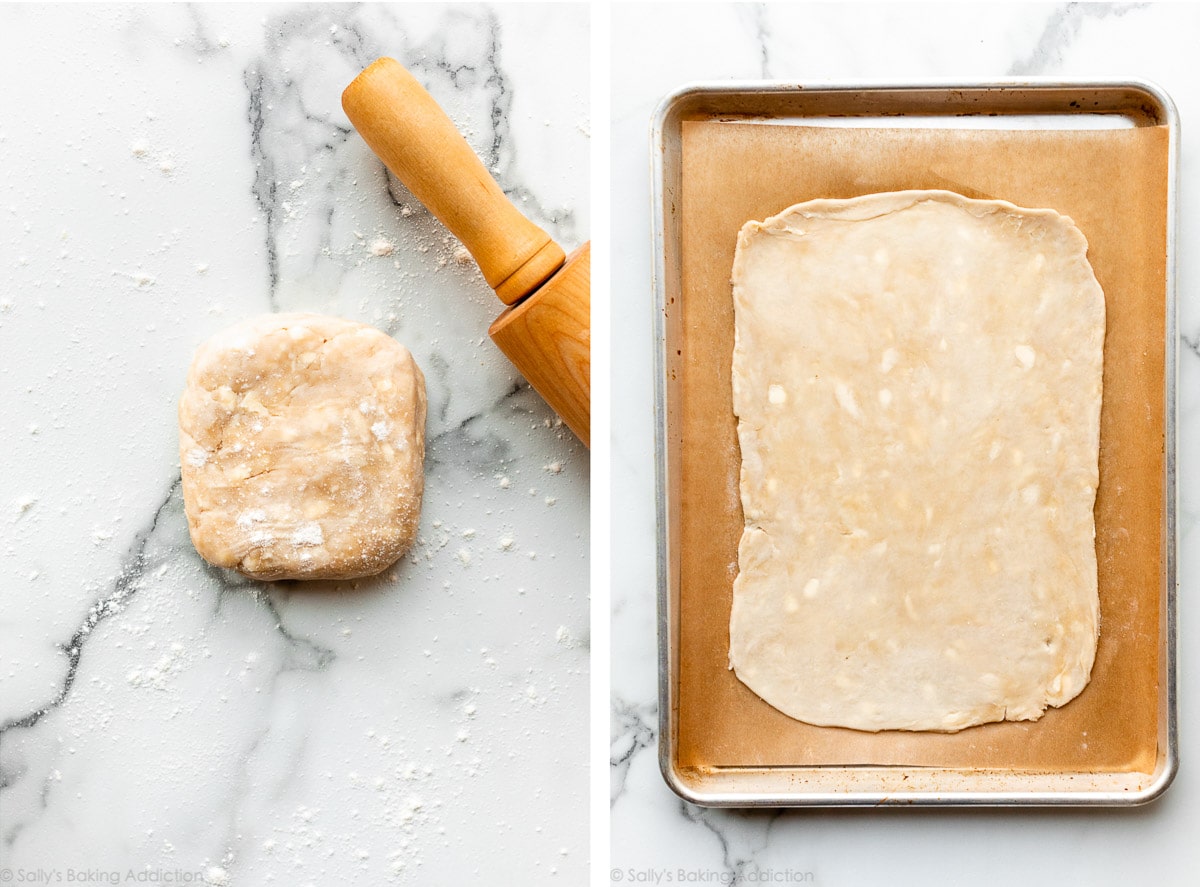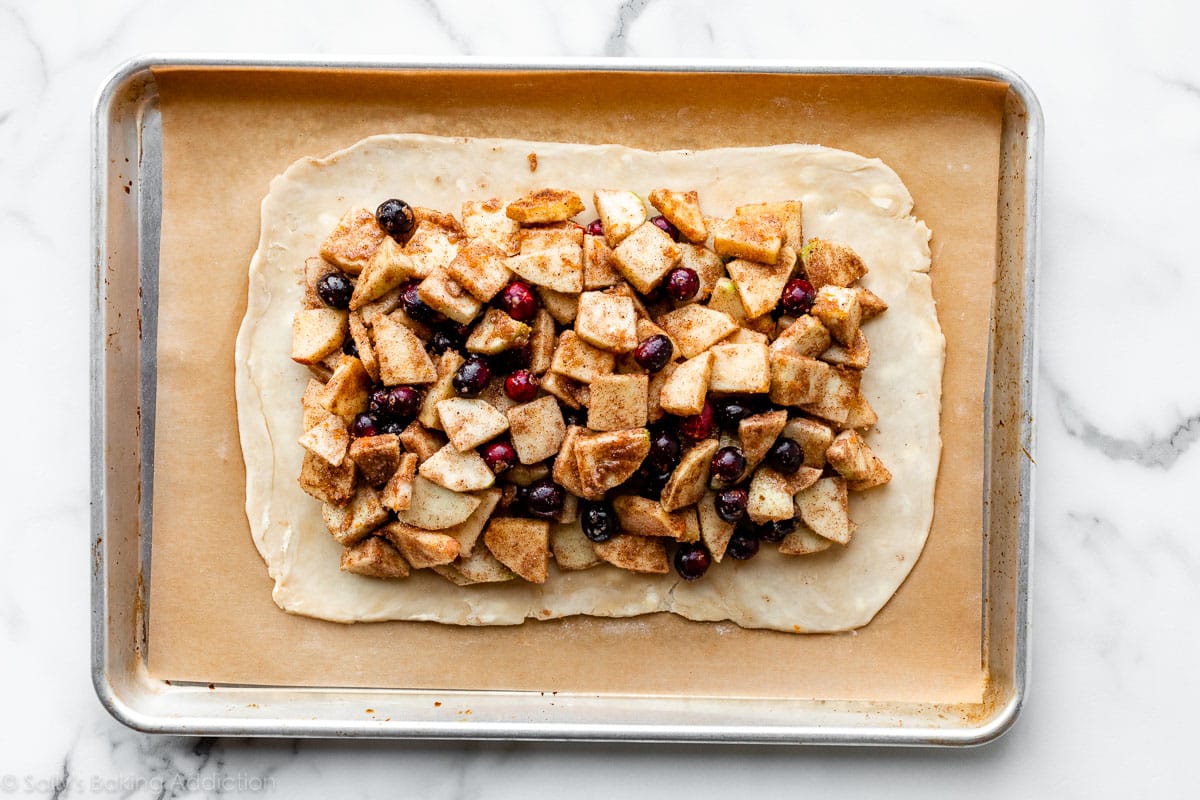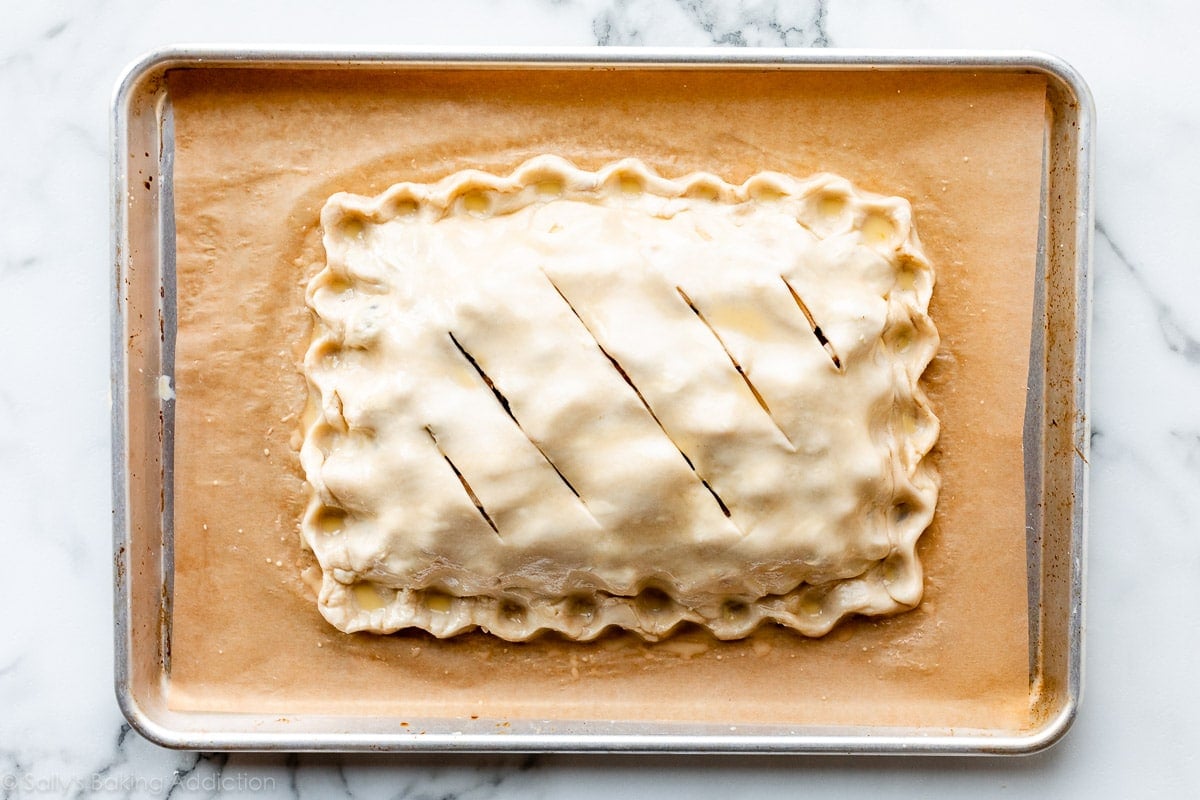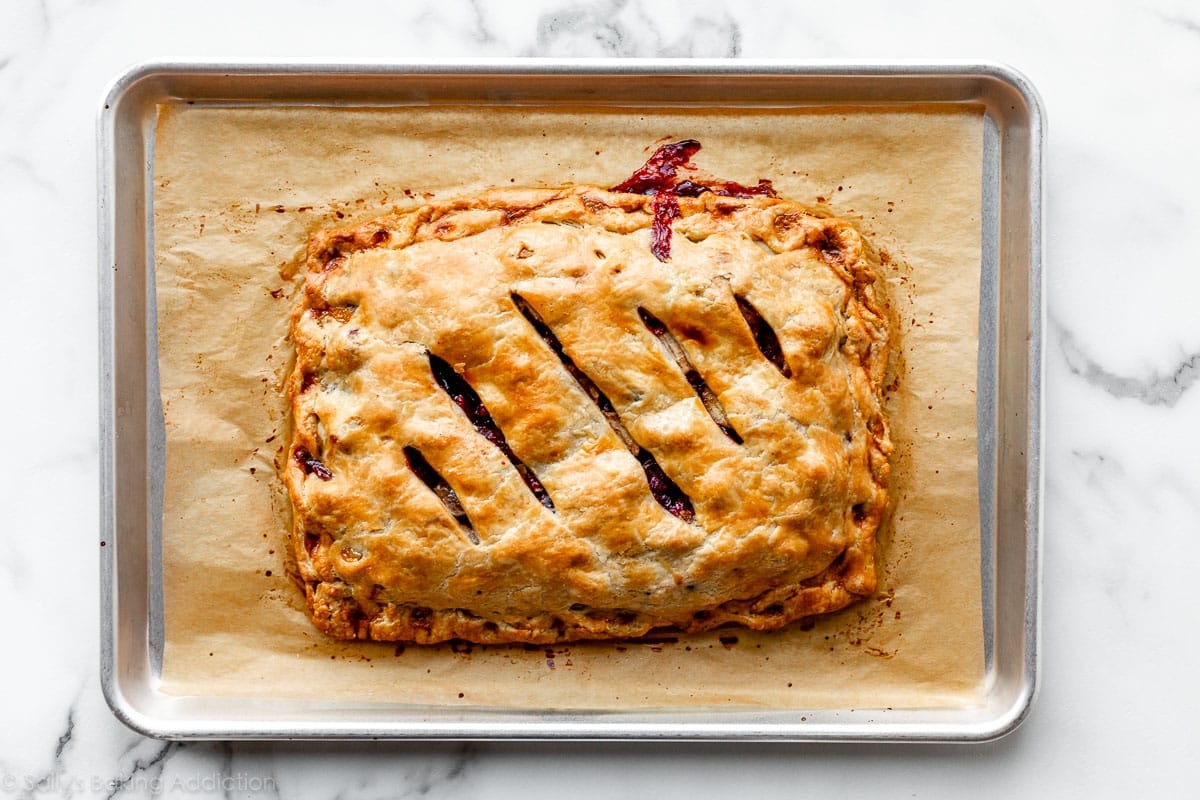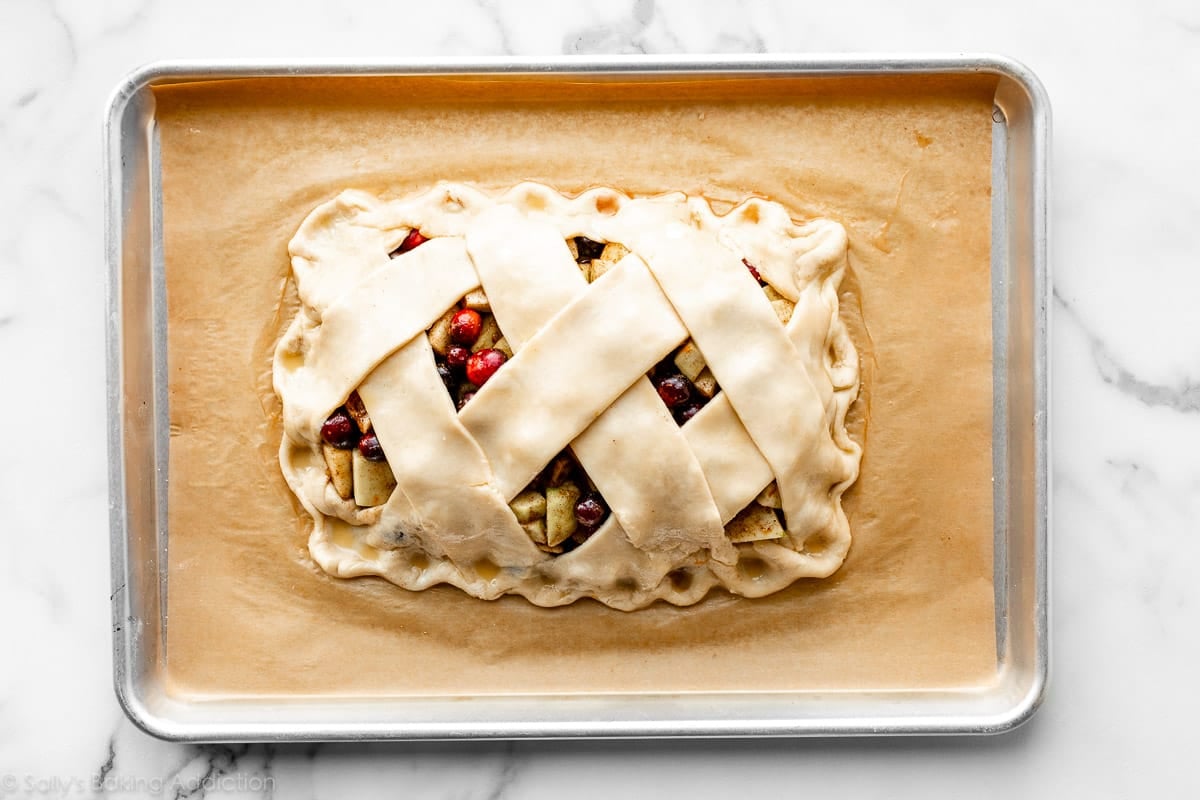I don’t say this a lot but here goes nothing: sometimes it’s ok to break the baking rules!! And we’re definitely doing that today with this pie. This is a free-form style pie with no boundaries. 😉 Just make sure the top and bottom crusts are rolled thin enough and secured/pinched together to prevent excess leaking. We’re basically making a giant pop-tart that’s welcome alongside your Thanksgiving pies. Might I add, it’s much easier to make than traditional apple pie, too.
Why You Will Love This Cranberry Apple Slab Pie
Smaller version of a traditionally large slab pie—serves 8. Slab pie is cut into bars/rectangles so it’s an easy dessert to slice, serve, and freeze. It’s shallow, so there’s no need to fully cool before slicing and serving. No par-baking the bottom crust. Altogether flaky, buttery, sweet, tart, fruity, and spiced! If a scoop of sweet and tart cranberry sauce is a must on your Thanksgiving plate, you’ll love the pop of flavor that cranberries add in this slab pie. Or you can swap cranberries for more apples or another fruit.
I suppose you could say this is like my apple galette, only a bit thicker and with a top crust. And it’s a smaller version of this apple slab pie and includes cranberries. It’s really just… its own special thing!
Pie Dough
You can use your favorite pie crust recipe, but I encourage you to try mine. You need the full pie crust recipe, which makes 2 crusts. (1 for bottom of pie, 1 for top of pie.) I use a mix of shortening and butter because they work together to make the BEST crust. Butter adds flavor and flakiness, while shortening helps the dough stay pliable which is helpful when you’re rolling and shaping it. Plus, its high melting point is advantageous because it helps the crust stay tender while still maintaining shape. It’s the same crust I use for my pumpkin pie and pecan pie, too. If you don’t want to use shortening, try my all butter pie crust recipe instead—it also yields 2 crusts.
3 Success Tips
Can I Bake This in a 9×13 Inch Pan?
You can, but the best option is a quarter sheet pan like this quarter sheet pan. The pie will take up the entire size of the pan, much like the full size apple slab pie takes up an entire half sheet pan. The lower sides help make sealing the pie dough edges a little easier. If you have and want to use a regular metal or glass 9×13-inch dish, you absolutely can! Avoid ceramic because the bottom crust will not cook through completely. Step-by-step photos below the recipe!
Tested Variations You Can Try
What Are the Best Apples to Use for Baking?
Firmer apples are ideal for baking so avoid soft, mealy, and mushy apples. And when a recipe calls for more than 1 or 2 apples, like today’s slab pie, apple crisp, or this apple crumble pie, it’s best to use a mix of tart apples and sweet apples.
Tart apples for baking: Granny Smith (my absolute favorite apple for baking), Braeburn, Jonathan, and Pacific Rose Sweet apples for baking: Jazz, Honeycrisp, Pink Lady, and Fuji
For a detailed list of my favorite apple varieties, and when to use each, you can visit my post The Best Apples for Baking.
See Your Cranberry Apple Slab Pies!
Many readers tried this recipe as part of a baking challenge! Feel free to email or share your recipe photos with us on social media. 🙂
Let Me Show You a Few Steps
For the filling, I recommend cutting the apples into chunks instead of slices. Since slab pie is thinner than regular pie, you can’t really layer the slices together to get enough apple in each bite. 1-inch chunks that are between 1/4- and 1/2-inch thick are ideal for this pie. Set filling aside as you work on the bottom crust. Tightly pile the filling on top leaving a 1.5-inch border around the edges. Dot with small pieces of butter. (I forgot to take a picture of the filling with butter on top but you can see me add it in the video.) Now it’s time to decide how you want to top your slab pie—do you want a full top crust, a lattice top, or other decorative pie crust design? Or do you want to know how to braid pie crust? I’m showing you two versions in the following photos and you can find instructions for both in the recipe above.
Full Top Crust:
Don’t forget to cut slits in the top for air vents.
Lattice Top Crust:
A little more challenging, but doable! As you can see in the video above, I do not trim excess pie dough from the edges. I like folding excess dough back onto the edges of the pie so there’s more dough to work with when crimping or fluting the pie crust. If you ever need help with pie dough edges, you can see me do this up-close in the how to lattice pie crust video starting at the 1:59 mark.
